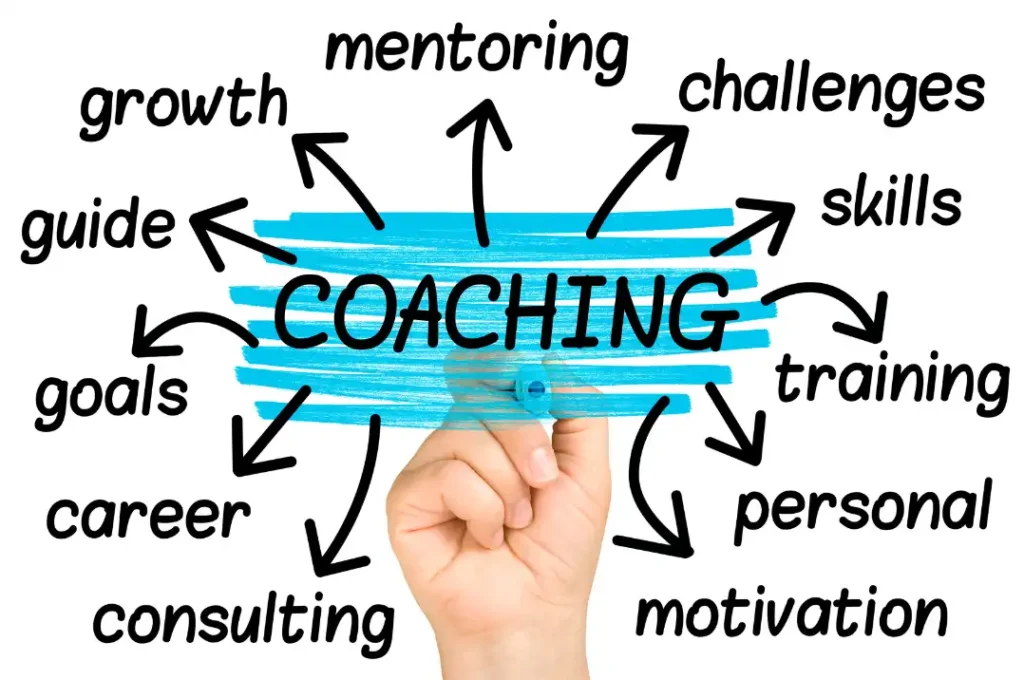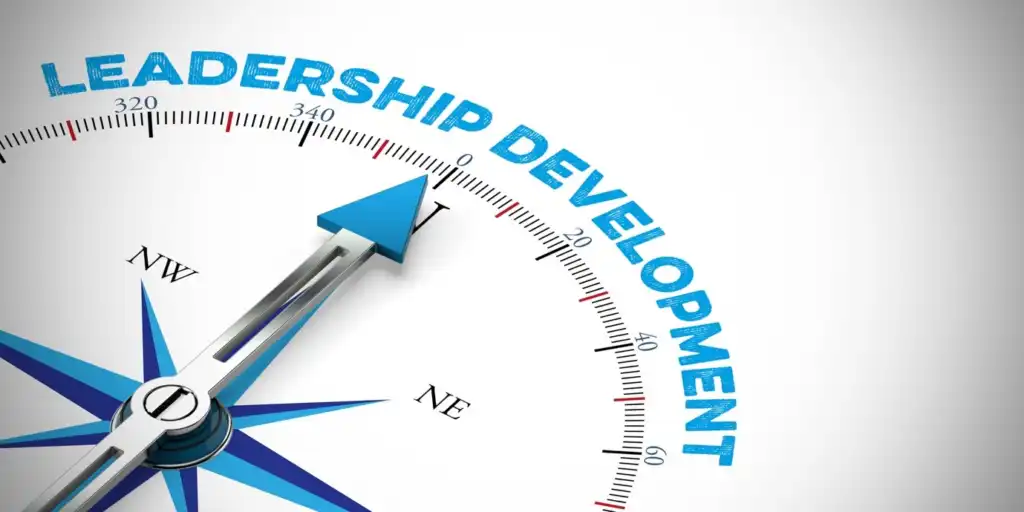Get insights into the role and benefits of executive coaching, emphasizing personalized guidance to improve leadership skills and navigate challenges. With examples drawn from over two decades of experience, the article explores the definition of an executive coach, the value they bring to individuals and organizations, and the factors influencing their fees. Additionally, it discusses the differences between executive and life coaching, who can benefit from executive coaching, and how to choose the right coach.

Last month, I began an engagement for an extensive executive coaching project with a CEO and three of his key executives, who all brought their unique concerns, issues, and goals. In light of this, the leadership coaching I provided needed to work with each person rather than being a one-size-fits-all-all to ensure improved performance.
For almost two decades, I’ve had the opportunity to work with more than 500 people as an executive coach. My clients have been CEOs and leaders in start-ups, Inc. 5000 companies, and Fortune 1000 companies, from Apple to American Express.
I wrote this article to serve as an introduction to the world of executive training. Whether you are an old hat at getting coached or a newbie considering using an executive coach for the first time, this article should give insight into how to make executive training the most fruitful.
Definition of an Executive Coach
“An executive coach is a trained professional who works with individuals, typically executives or high-level managers, to help them improve their work performance, develop their leadership abilities, and navigate challenging situations.” That about covers it.
In today’s business landscape, where change is constant, and expectations are high, the role of an executive coach has become increasingly relevant. As leaders feel the pressing need to adapt to new technologies, manage diverse and remote teams, and achieve ambitious targets, spearhead new strategies, personalized guidance and support have become paramount.
The origin of the term “Coach” was initially started in 1830 when Oxford University put forth the meaning of this term as slang for a tutor. In the early 20th century, the idea of “training” in business began when industrial psychologists started working with executives and employees to improve their management abilities. Over the years, the field has evolved and expanded, incorporating various theories and approaches from psychology, leadership development, and organizational behaviour.
Oddly enough, there is some controversy that exists when answering this question. Depending on your perspective, an executive coach role can encompass various activities. Executive coaching should be less about providing advice and direction and more about inquiry. Others fall on the side of executive training being a more active engagement offering recommendations, specific actions, and, in some cases, opinions.
What do Executive Coaches Help With?
Regardless, when looking to work with the best executive coach, they should be able to provide the following:
Set Goals And Objectives:
Executive coaches can help industry leaders identify both short-term and long-term goals for the organization or personal growth. They can assist in ensuring that there is alignment between the individual’s objectives and the organizational focus.
Increase Awareness Through Feedback:
A skilled executive coach can provide honest, observational feedback, revealing blind spots in an executive’s leadership style, approach, or specific issue.
Skill Development:
Whether it’s improving communication, strategic thinking, delegation, or providing employee feedback, professional coaches can be instrumental in facilitating leaders in enhancing vital skills.
Accountability Partner:
Leaders often report feeling lonely at work – isolated as the individual at the top. An executive coach can serve as a sounding board, confidant, and someone who can hold the manager accountable for taking action. A coach can help ensure that executives remain on track with their objectives, holding them responsible for their commitments.
Decision-Making Support:
In times of uncertainty or when facing critical decisions, an executive coach can serve as a sounding board, helping the individual leader explore options and potential outcomes.

What Is the Average Cost of An Executive Coach?
The cost of executive leadership coaching can vary widely based on factors like experience, reputation, geography, and the specific needs of the client. On average, fees can range from $250 to over $3,500 per hour. While this might seem steep, many organizations and executives view this as an investment. The skills, insights, and transformations that result from executive training often lead to improved performance, better decision-making, and tangible organization outcomes that can far outweigh the initial costs.
A study by MetrixGlobal LLC highlighted that companies saw an average return of $7.90 for every $1 invested in executive coaching. This underlines the quantifiable financial benefits that complement the qualitative improvements in leadership and decision-making abilities.

Is An Executive Coach Worth It?
The return on investment from coaching can be substantial. A study by the International Coaching Federation (ICF) found that 86% of companies felt they recouped their investment in training and more.
The benefits aren’t just monetary. Enhanced leadership, improved organizational culture, increased retention, and better decision-making are just a few of the qualitative gains. However, like any other investment, the key lies in choosing the right coach and ensuring alignment with organizational and personal goals.
In an article titled “How’s Your Return on People?” (Harvard Business Review, March 2004) Authors Laurie Bassi and Daniel McMurrer note that three stock portfolios comprised only of companies that “spend aggressively on employee development,” each outperformed the S&P 500 by 17 – 35% during a one-year period.
Another study by Manchester Inc. emphasized the multifaceted benefits of executive coaching. Their research indicates notable improvements in productivity (53% of executives), work quality (48%), organizational strength (48%), and enhanced work relationships with both direct reports (77%) and peers (63%). Beyond individual growth, such studies underscore the organizational-wide advantages of executive training, including reduced customer complaints and bolstered retention rates.
What Is an Executive VS Life Coach?
While executive and life coaches aim to help individuals reach their full potential with their training, their focal areas and methodologies might differ.
Executive Coaches focus primarily on improving leadership and management abilities, addressing challenges specific to the company environment, and aligning an executive’s growth with organizational objectives. They delve deep into workplace dynamics, team leadership, strategic vision, and other facets of a corporate setting.
As a mentor, Life Coaches, on the other hand, have a broader scope. They work with individuals on various aspects of their lives, such as relationships, personal growth, work-life balance, and overall life satisfaction. Their approach is holistic, addressing both personal and professional arenas but without the specific corporate lens that executive coaches apply.

Who Can Benefit from Executive Coaching
Executive coaching used to be limited to CEOs and the most senior C-suite leaders only. However, as the value of executive leadership coaching has become popularized, a broader group of leaders such as a vice president, executives, entrepreneurs, managers, and business owners have engaged trainers. Some of the groups who most benefit from executive coaching include:
C-level Executives and Senior Managers
- These high-level leaders often face unique challenges that benefit from personalized training interventions.
Entrepreneurs and Startup Founders
- Given the volatile nature of startups, founders can gain invaluable insights from coaches to navigate the tumultuous early days.
Professionals Transitioning to Leadership Roles
- A new manager can lean on coaches to ease their transition and quickly become effective in their new roles.
Teams and Departments in Need of Cohesion and Direction
- Beyond individual leaders, an entire team can benefit from coaching, fostering unity and a shared direction.
What To Look for In an Executive Coach
Selecting the right executive coach is crucial to the success of the engagement. When considering potential coaches, assessing their qualifications, credentials, education, and experience are all essential factors.
However, the other essential factor is chemistry. Trust between the executive coach and leader is a critical element in the success of the engagement. The more comfortable the leader feels in opening up to the coach, the more successful the executive coaching will be. A good coach understands how to create a safe and supportive environment that encourages open dialogue and self-reflection.
There is some disagreement regarding the necessary qualifications of an executive coach. Some organizations will only hire coaches who have a degree or coaching certification. Others focus more on their coaching skills.
I will fully admit that I am biased towards the second. I have seen great coaches with decades of experience despite not being a professional certified coach and mediocre coaches with multiple coaching certificates – and vice versa. Making a coaching certificate a requirement for whom you hire severely limits you finding the right person for your needs.
Finally, another aspect to consider when choosing an coach is their track record of success. Look for someone who can provide references, testimonials or success stories from previous clients who have achieved significant growth and professional development under their guidance. This will give you confidence in their ability to deliver results and help you reach your professional goals.

The Different Types of Executive Coaching Services
One to One Coaching
Executive coaching services can vary depending on the needs and preferences of the individual or organization. Some coaches offer one-on-one coaching, working directly with the executive to address their specific challenges and goals. This personalized approach allows for tailored guidance and support.
During one-on-one coaching, the coach and executive engage in deep conversations to explore the executive’s strengths, weaknesses, and areas for improvement. The coach helps the executive gain self-awareness and develop strategies to overcome obstacles and achieve their professional goals. These sessions are highly confidential and provide a safe space for the executive to discuss sensitive topics and receive unbiased feedback.
Additionally, one-on-one coaching allows for a flexible schedule, as the coach and executive can arrange sessions at mutually convenient times. This personalized attention ensures the executive receives focused guidance and support to address their unique needs and challenges.
Group Coaching
Alternatively, group coaching can be beneficial, particularly for a team or organizations facing shared issues. Group coaching encourages collaboration, fosters community, and provides a platform for peer learning and support. During group training, executives discuss common challenges, share experiences, and learn from one another. The coach facilitates these sessions, ensuring that everyone has an opportunity to contribute and benefit from the collective wisdom of the group. This collaborative approach fosters a supportive and inclusive environment where executives can gain valuable insights and perspectives from their peers.
Group coaching also promotes teamwork and enhances communication within the organization. Executives develop a deeper understanding of each other’s roles and challenges, which leads to improved collaboration and problem-solving. By working together in a group setting, executives can leverage their knowledge and experience to find innovative solutions to complex problems.
Moreover, group coaching provides a cost-effective option for organizations that want to offer coaching services to multiple executives. By engaging in group coaching, organizations can maximize their resources and ensure that more executives receive valuable guidance and support.
Whether through one-on-one or group training, executive coaching services offer a transformative experience for individuals and organizations alike. These services empower executives to enhance their leadership skills, improve decision-making, and achieve their professional goals. By investing in executive coaching, individuals and organizations can unlock their full potential and drive sustainable growth.
The Role of Technology in Executive Coaching
In today’s digital age, technology has transformed many aspects of our lives, including executive training. While face-to-face coaching remains valuable, technology has expanded the possibilities for training session delivery.
Virtual coaching, conducted through video conferencing or online platforms, offers convenience and flexibility for both trainers and clients. It enables training engagements to transcend geographical boundaries, making it accessible to individuals worldwide.
Challenges In Executive Coaching
Executive coaching can be an advantageous and effective development tool for leaders, but it also comes with challenges. Here are some of the main challenges faced in executive training.
Building Trust: Establishing a solid trust relationship between the coach and the executive is crucial. The executive must feel comfortable sharing personal and professional challenges openly. Building this trust can take time, and it’s essential for effective coaching.
Resistance to Change: Some executives may be resistant to change or may need to be fully committed to the coaching process. Overcoming this resistance and helping the executive see the value in evolution is a significant challenge.
Time Constraints: Executives often have hectic schedules, making it challenging to find time for coaching sessions. This can hinder the consistency and effectiveness of the coaching process.
Lack of Alignment: There needs to be alignment between the goals of the executive, the training process, and the organization’s objectives. Misalignment can lead to ineffective training and satisfaction.
Measuring Impact: Demonstrating the ROI (Return on Investment) of executive coaching can be challenging. Establishing clear metrics and benchmarks for success is essential but can be complex.
Managing Expectations: Setting realistic expectations for what executive coaching can achieve is vital. Over-promising results or underestimating the time and effort required can lead to disappointment.
Navigating Organizational Politics: Coaches must know and navigate the organizational politics influencing the coaching process and the executive’s role.
Confidentiality and Ethical Concerns: Maintaining confidentiality is paramount in executive coaching. Trainers must navigate the delicate balance between supporting the executive and maintaining organizational loyalty.
Cultural Fit: Ensuring the coaching style and approach fit well with the executive’s personality and the company’s culture is crucial for a successful coaching relationship.
Adapting to Change: Organizations and roles are constantly evolving, and trainers need to adapt their approaches to accommodate these changes and remain relevant to the executive’s development needs.
Maintaining Professional Boundaries: Ensuring that the coach-executive relationship remains professional and does not cross into personal territory is essential for maintaining trust and effectiveness.
Overcoming Skepticism: Some executives may be skeptical about the benefits of coaching or may need to buy into the process thoroughly. Overcoming this skepticism is crucial for a successful coaching relationship.
Lack of Self-Awareness: Some executives may need more self-awareness or may not be willing to reflect on their behaviors and impacts. This can make it challenging to create meaningful change through coaching.
Unrealistic Goals: Setting realistic and achievable goals is a critical part of the coaching process. Executives may sometimes have unrealistic expectations, which is a significant challenge.
Handling Emotional Issues: Executives, like anyone else, may be dealing with personal or emotional issues that can impact their performance. Coaches need to be prepared to handle these issues sensitively, which can be challenging.
Technology and Remote Coaching: With the rise of remote work, coaches and executives may only sometimes be able to meet in person. Adapting to virtual coaching and ensuring it is as effective as in-person coaching is a growing challenge.
Sustaining Improvement: Ensuring that the improvements and changes made during the coaching process are sustained over the long term is a common challenge in executive coaching. Addressing these challenges requires skill, experience, and a deep understanding of the executive being coached and the organizational context in which they operate.

How to Prepare for Executive Coaching
Preparing for coaching can significantly enhance the effectiveness of the coaching engagement. First and foremost, it’s essential to have a clear understanding of your goals and objectives. Reflect on what you hope to achieve through the coaching engagement and establish measurable milestones.
Additionally, come to coaching sessions with an open mind and a willingness to explore new perspectives and possibilities. Be prepared to engage in self-reflection and be open to feedback. The more you invest yourself in the coaching process, the more you will gain from it.
In conclusion, an executive coach is more than just a mentor; they’re a catalyst for transformation. For organizations and leaders committed to growth, innovation, and achieving peak performance, hiring a coach for executives can be a game-changing decision. Whether it’s about sharpening leadership skills, navigating organizational challenges, or setting visionary goals, executive coaches play an instrumental role in guiding leaders toward excellence.
SMG Executive Coaching Services
For over 20 years, I have helped CEOs, C-suite Leaders, Startup Founders, and business leaders accomplish their personal and business goals. Much of what I’ve learned about this topic comes from up close and in the fieldwork consulting work with leaders from Inc. 5000 companies, mid-cap companies, and startups.
As an author and columnist for Inc.com, I constantly search for studies, surveys, real-world examples, and techniques to help my clients achieve stronger personal brands, executive presence and leadership excellence.
If, after reading this article, you find yourself thinking, “yes, I get it. I need to hire an executive coach,” but are in a quandary about how to go about it, consider booking an initial consultation with me at no charge.
I will review your information before our call and give you at least one or two specific ideas. No sales, just useful information, and insight. You can book a session with me here.
